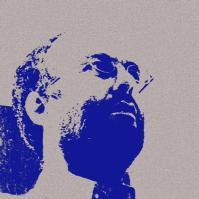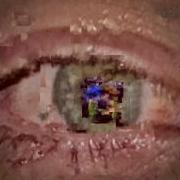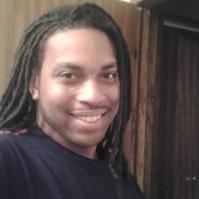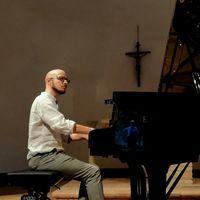-
Posts
690 -
Joined
-
Last visited
-
Days Won
24
luderart last won the day on April 17 2024
luderart had the most liked content!
About luderart

Profile Information
-
Gender
Male
-
Location
Lebanon
-
Occupation
Psychologist
-
Interests
Chess, Scrabble,
-
Favorite Composers
Bach, Haydn, Mozart, Beethoven, Cherubini, Brahms, Schubert, Schumann, Dvorak, Franck, Khachaturian, Part, Mansurian
-
My Compositional Styles
Short aphoristic pieces for various instruments (mainly solo)
-
Notation Software/Sequencers
Sibelius 6
-
Instruments Played
Cello
Recent Profile Visitors
29,527 profile views
luderart's Achievements
-

Add Your Own Composition-Related Maxim.
luderart replied to luderart's topic in Composers' Headquarters
Let me revive this old and interesting thread I had started many years ago, and also take this opportunity to encourage newer members to add their own compositional wisdom in the form of maxims, as well as discuss each other’s maxims. Here is a new maxim that I thought of a few hours ago today: As composers, we never really know why we compose. If we knew it , we might never have become composers. -
No composer composes thinking their music is worthless! They all do so thinking that they have something valuable to say. That includes you and me. Of course I appreciate the music of all the masters that you mentioned, and also that of Bach and Handel, Haydn, Schubert, Cherubini, Brahms, Khachaturian, and many others (including living composers). But all those composers do not negate me as a composer; or comparison with them does not devalue me as a composer. They do not replace me or make me irrelevant, redundant or useless. They are not me! So however great and genius their music is, it can never fully express my mind, my thoughts and my feelings. I compose what I am inspired to compose and what I have to express inside myself. I do not have to imitate them or to devalue myself just because they were and are great! And I evolve as a composer at my own pace, even though you might not notice it, just as they did at their own pace.
-
'Good' and 'popular' are not necessarily the same. Besides, I believe that the evaluation of music is a largely subjective matter. So, people's opinions of music differ. And that is natural. What you might not like, there are others who like. You have no right to impose your opinion as objective truth as far as music is concerned.
-
Welcome back Sojar! I must say that your reviews haven't changed at all too. Nothing constructive, all negative and judgemental....
-
What an enjoyable concerto for trumpet. The theme of the opening movement reminded me of Hummel's trumpet concerto's opening movement's theme. Bravo. I wonder how much time it took you to compose it. Also, are you trying to have it performed?
-
luderart started following Soliloquy for Organ No. 7 , Three Sententiae for Glissotar, Op. 386 , Soliloquy for Organ No. 4 and 2 others
-
This is my "Three Sententiae for Glissotar, Op. 386", a piece I composed last year. The glissotar is a newly invented instrument that is a version of the Hungarian woodwind instrument "tarogato" but with the distinction that the notes are not determined by holes as in most woodwind instruments but, as in string instruments, by pressing the fingers anywhere in the range; and glissandos are possible. I had to create a new soundfont for it in order to be able to make this mp3 version. I have provided a description of 'sententia' as well as of 'glissotar' on the title page of the score.
-

How do I compose faster?
luderart replied to latebeethoven_addict's topic in Composers' Headquarters
1. Use a faster writing pen! 2. Use a faster computer/laptop. 3. Think faster. For some more serious advice: 1. Dedicate the time for composition. 2. Don't force yourself to compose. Let the inspiration come and you will compose. At least that's the way I approach it. I have heard others advise that you have to start composing and the inspiration will follow. But for me, it isn't like that. 3. For inspiration: a) Listen to other composers' music. b) Check for calls for scores and competitions. These will give you ideas for composition. -
Hello Henry, Thanks for your review and valuable comments regarding this piece. Yes, this is like all my organ pieces except the "Soliloquy for Organ No. 1" composed for organ manuals only. Indeed the feedback of an organ player would be great!
- 3 replies
-
- old pieces
- deleted pieces
-
(and 1 more)
Tagged with:
-
The fifth piece within the group of compositions I had already shared here on YC and have been sharing once again because they had gotten deleted during the renovation of the website in late April-early May 2016, and after a hiatus of a little more than six years (the fourth one having been reposted on July 25, 2019), this is my "Soliloquy for Organ No. 4", Op. 156, composed June 27-29, 2013. As I have previously mentioned regarding these old pieces being reposted, I have been choosing the best ones (in my current opinion) among the 181 previously posted but deleted pieces and reposting them. Here is part of how I had introduced it at the time I originally posted it, on June 30, 2013: "I believe this piece to be one of my grandest musical conceptions, and therefore possibly the greatest piece I have yet composed." Let me here take the opportunity to also put the links of the previous four reposted pieces: 1. Three Fugatos for Harpsichord, Op. 222 (reposted on 28/5/2018): https://www.youngcomposers.com/t36633/three-fugatos-for-harpsichord-op-222-old-deleted-piece-1181/ 2. Three Sententiae for String Quartet, Op. 139 (reposted on 30/7/2018): https://www.youngcomposers.com/t36851/three-sententiae-for-string-quartet-op-139-old-deleted-piece-2181/ 3. Soliloquy for Clarinet No. 5 (Op. 172) (reposted on 11/12/2018): https://www.youngcomposers.com/t37265/soliloquy-for-clarinet-no-5/ 4. Reverie for Double Bass (Op. 25) (reposted on 25/7/2019): https://www.youngcomposers.com/t38143/reverie-for-double-bass-op-25/ Finally, I hope that pieces posted on this website will never again be deleted due to renovation of the website. In addition to many pieces being lost forever (fortunately I had mine all backed up), we will have to dedicate hours of time to find, prepare and repost pieces (as has been the case with this post in which (however) I also looked for and posted the links of my four previously reposted pieces).
- 3 replies
-
- 1
-

-
- old pieces
- deleted pieces
-
(and 1 more)
Tagged with:
-
Hello Demertzis, I listened so far to three of your piano pieces. I was impressed, especially by this one. I have to say that you have a rich fund of creativity and are an undiscovered genius of piano music!! Bravo. I hope that you notate your music and give it to actual performers so that the world will hear your great music interpreted by the great pianists that it deserves!!!
-
Thanks for your review Daniel. Regarding the previous soliloquies for organ, I had posted them all but they were from before 2016 (actually 2013 and earlier) and so they belong to the list of posted compositions that got deleted once the new version of the website was introduced sometime in late April - early May 2016. To be sure I had reposted some of my 181 posted pieces with the tag "Old Pieces". So I might repost some of my soliloquies for organ No. 1- 6, hopefully soon.
-
Thanks for pointing it out. I changed it in the score and uploaded the revised score.
-
This is my Soliloquy for Organ No. 8. Like my Soliloquies for Organ No.s 2-7 and my two sets of sententiae for organ, it is composed for organ manuals only. Here is the link to my "Soliloquy for Organ No. 7": https://www.youngcomposers.com/t47956/soliloquy-for-organ-no-7/
-
Thanks for pointing out the fact that I have exceeded the lower range of the organ’s manuals. I had been confused with the “Scientific Pitch Notation” (SPN)’s consideration of middle C as C4 while for organs the same note middle C is considered C3. Thus I have assumed I could go down to C1 in SPN but it is C1 for organs which is 1 octave above, i.e. like SPN’s C2. I revised the piece to keep within the lower range of C2.
-
This is my Soliloquy for Organ No. 7. Like my soliloquies for organ No.s 2-6 and my two sets of sententiae for organ, it is composed for manuals only. Edit on 2/9/2025, 8:00PM GMT: After realizing I had some notes out of range thanks to a review, I revised the piece to keep in range and replaced the score and the mp3 with the revised version.









